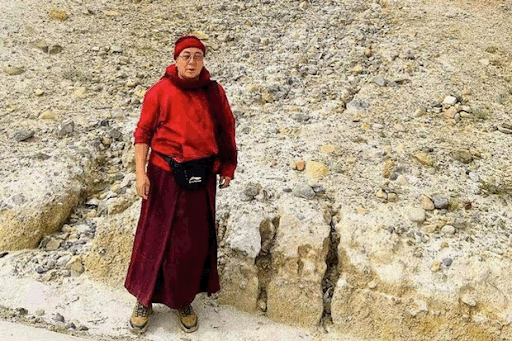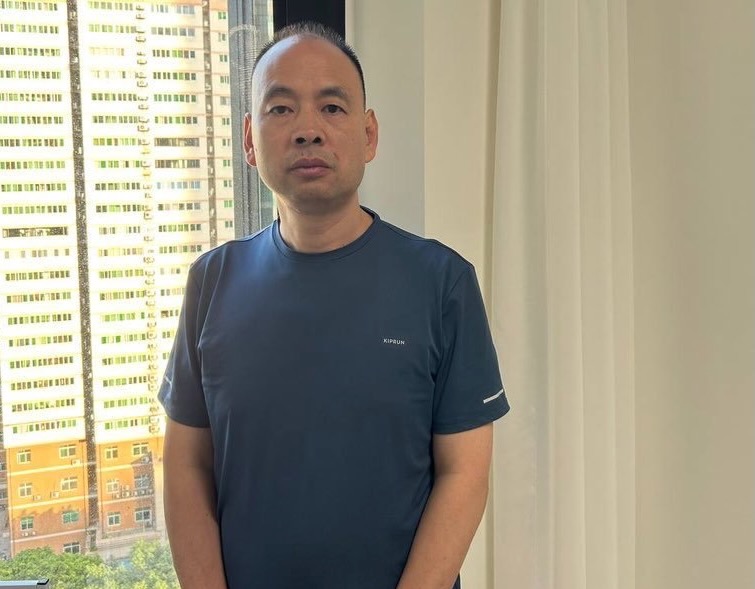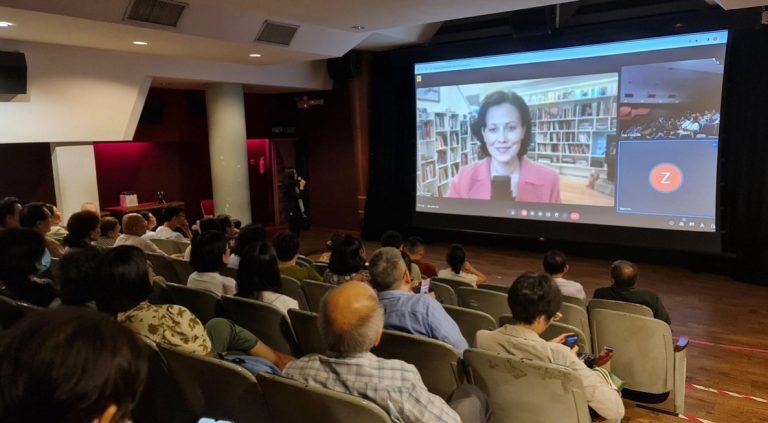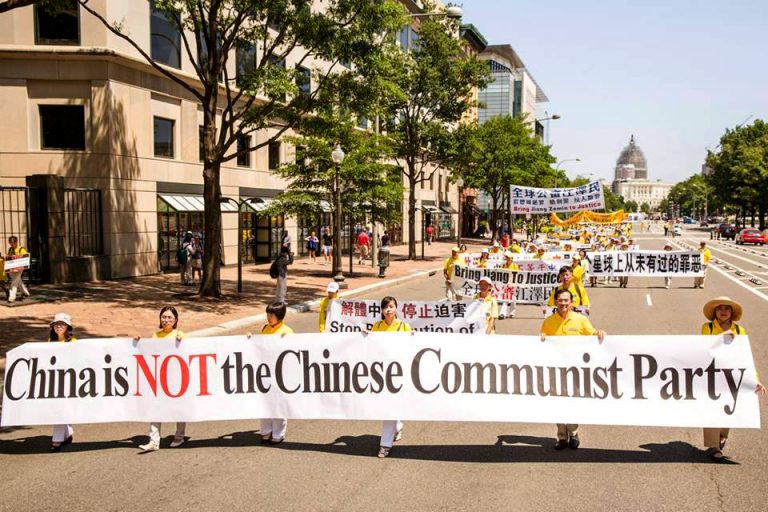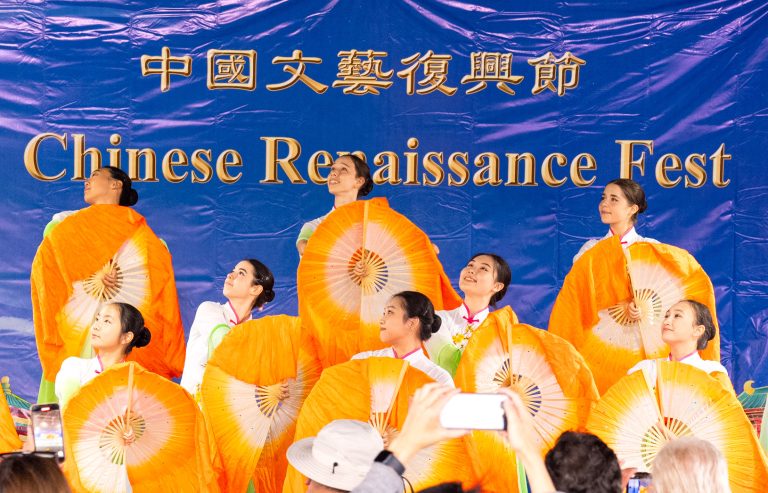On Sept. 26, a Tibetan monk was sentenced to 18 months in jail by Chinese authorities for sharing a speech by the Dalai Lama online, Tibetans in exile told Radio Free Asia (RFA).
Jampa Choephel of Penkar Thang Monastery in Rebkong county, Qinghai province, was one of many monks targeted by the Chinese Communist Party (CCP).
He was arrested on Mar. 10 after he reposted the Dalai Lama’s teachings on his WeChat account, Tibetan news outlet Phayul reported. The post was also made to celebrate the anniversary of the Tibetan uprising of 1959, the Tibetan language tibettime.net reported on Sept. 24.
Following his arrest, on March 22, he was sent to the county’s Gurathang Prison, where he remained until August when he was sentenced in a “secret” trial, anonymous sources claimed.
Both his arrest and eventual detention were carried out by the Rebkong City Police Department, with the Rebkong City People’s Procuratorate proceeding with the prosecution. His sentence was delivered by the city’s People’s Court.
Success
You are now signed up for our newsletter
Success
Check your email to complete sign up
After the trial, Choephel remained for another month in Gurathang, and his total of six months detained would count towards his sentence, the sources added. They also stated that Choephel was moved to a prison in the provincial capital of Xining, where he would serve the rest of his jail time.
Choephel’s family members were not informed about the trial, with his relatives even reportedly threatened by authorities if they ever look into the situation.
“This constant surveillance has created a climate of fear and anxiety for them, preventing them from inquiring about his well-being,” one of the sources said.
READ MORE:
- Ignoring Beijing’s Warnings, US Delegation Visits the Dalai Lama
- ‘The real cancer plaguing China is the CCP itself’: Statements From the Tuidang Movement (August 2024)
- US District Court in New York Sentences CCP Agent for Aiding Transnational Repression Against Falun Gong
The hunt for monks
Choephel’s arrest on March 10 was on the Tibetan National Uprising Day; the day commemorating the failed Tibetan uprising against communist rule in 1959.
Since then, China has full control over Tibetans who reside in Rebgong (Tongren in Chinese), located in Malho (Huangnan in Chinese), Tibetan Autonomous Prefecture. Political activities here have been heavily restricted, with cultural and religious activities also monitored constantly.
Choephel is one of many of Tibet’s Buddhist clergy and intellectuals captured and sent to unknown areas for “expressing their views or sharing information” regarding the situations in Tibetan areas. Possession of photos or videos of the Dalai Lama is also punishable on the charges of “separatism”.
Born in Rebkong Medpa, Choephel fled to India in 1986 as a refugee, spending 10 years studying at the Buddhist Dialectics Institute in Dharamshala. Upon returning home in 1996, he moved to Penkar Thang Monastery in lower Rebkong, devoting himself to meditation and spiritual practice.
Choephel is a master of Tibetan calligraphy, though he also taught writing and English to those willing to listen to his teachings. He would also visit holy sites to gain more spiritual insight.
However, Choephel was heavily monitored by the authorities, as the police continued to patrol and harass him with “warnings” at his home.
Fresh from his visit to the U.S., the Dalai Lama had returned to Dharamsala to tend to his devotees. But after his knee-replacement surgery in the U.S., worries are rising over his successor, as China remains in control over Tibetan matters.
Recently, a team of Indian mountaineers climbed up a previously uncharted mountain in India’s northeastern state of Arunachal Pradesh, which had been claimed by China. They proceeded to name it after the sixth Dalai Lama, Tsangyang Gyatso.
This came after Beijing’s attempts to rename several locations controlled by India in Arunachal Pradesh; a move that earned the ire of the Indian government. Beijing itself appears unaware of the matter.



